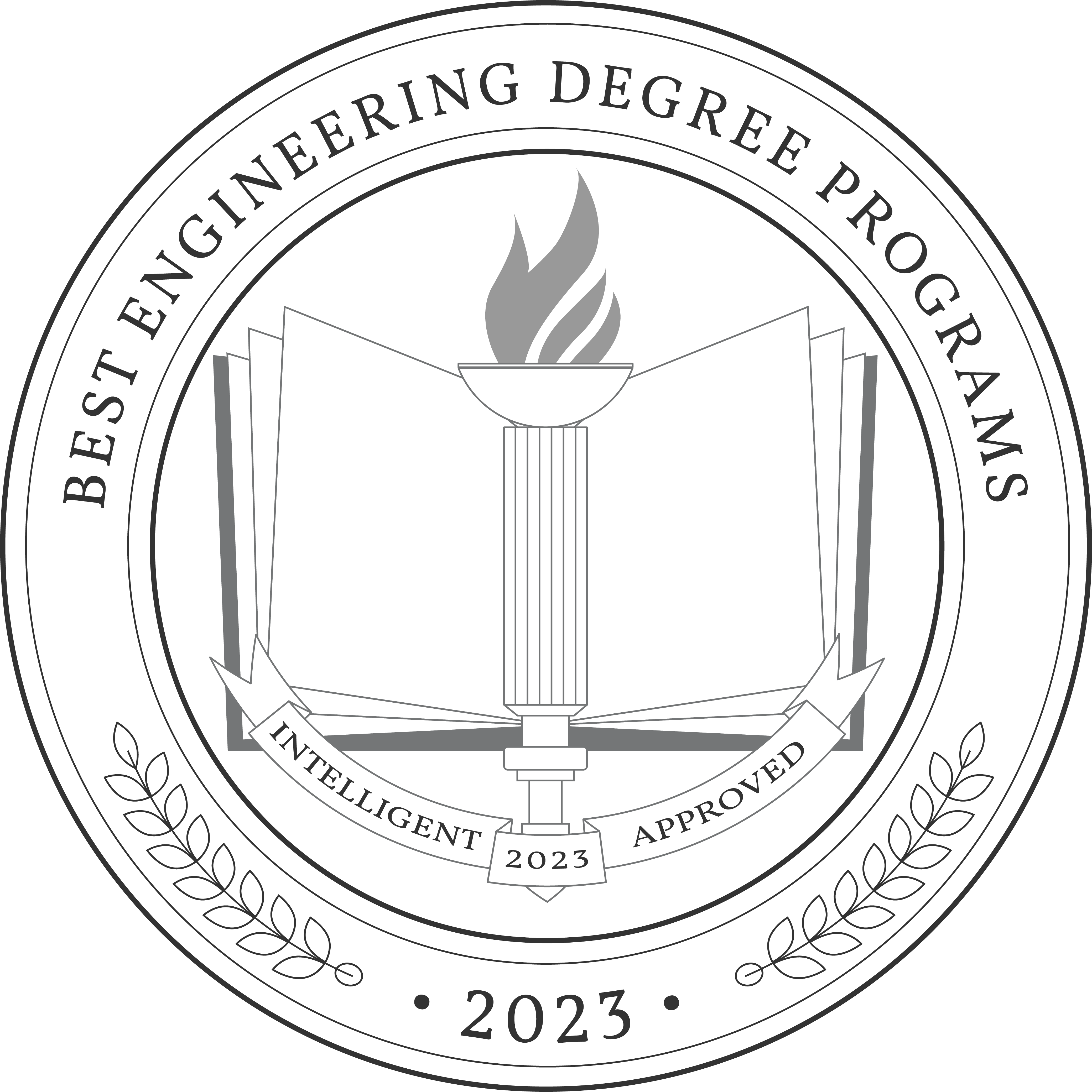Why This Matters
-
OVER 91,300 NEW JOBS EXPECTED OVER THE NEXT DECADE
The Bureau of Labor Statistics projects that the field of architecture and engineering will grow 4% by 2031.
-
THERE ARE 20 DIFFERENT DISCIPLINES WITHIN THE FIELD OF ENGINEERING
Engineering is one of the most diverse fields of study. While many students choose to study general engineering, the majority opt for mechanical engineering, followed by civil engineering and electrical engineering.
-
EARN $75,000+ PER YEAR
The average salary for workers in the architecture and engineering industry is $79,840, which is much higher than the average salary for all occupations ($45,760).
Our Research
This list features some of the best engineering degree programs at top colleges across the country. Each school featured is a nonprofit, accredited institution — either public or private — with a high standard of academic quality for post-secondary institutions. The programs on our list are accredited by the Accreditation Board for Engineering and Technology (ABET), a reputable organization that assesses engineering programs for educational excellence and a commitment to quality education.
We evaluated each school’s program on tuition costs, admission, retention and graduation rates, faculty, and reputation as well as the student resources provided for on-campus students. Then we calculated the Intelligent Score on a scale of 0 to 100. Read more about our ranking methodology.
Next, we compared this comprehensive list of engineering degree programs to a list of aggregated college rankings from reputable publications like the U.S. News & World Report among others to simplify a student’s college search. We pored through these rankings so students don’t have to.
The Top 50 Engineering Degree Programs

Discover More Options
What You Should Know About This Degree
Students considering degrees in engineering are often conflicted as to whether to pursue an engineering discipline or to study physics instead. The two are related, but very different. Where physicists work to understand the ways that energy and matter interact, engineers use the information gathered by physicists and put it into action.
As a result of the interconnectedness of the two fields of study, students pursuing engineering degrees will end up studying physics extensively, as well as math and other scientific concepts. And many students who pursue physics degrees go on to careers in engineering.
No matter what discipline of engineering you choose as your area of focus, your engineering degree program selection process should include checking on each school’s accreditation. Though regional accreditation is important for any undergraduate degree, the ABET accreditation is what will assure you of the college or university’s dedication to providing you with a high-quality engineering education that will be highly respected within the field.
Individuals who graduate with a degree in engineering have extremely promising futures, as the field is experiencing continuous growth and the starting salaries for those with an engineering degree is significantly higher than for those graduating with other types of degrees. Though the most growth is anticipated in mechanical engineering and civil engineering, other disciplines including aerospace engineers, computer hardware engineers, health and safety engineers, and biomedical engineers are also expected to be in great demand.
There are several different certifications to which a graduate of an engineering degree program may aspire depending upon the particular discipline that you select for your area of expertise. In most cases, certification or licensing will require both an engineering degree and several years of experience in the field. Some of these certifications include the Professional Engineer license bestowed by the National Society of Professional Engineers; the Engineer in Training Certification offered by the National Council of Examiners for Engineering and Surveying; electrical and mechanical systems certifications offered by the National Institute for Certification in Engineering Technologies; and civil engineering technology certifications, which are also offered by the National Institute for Certification in Engineering Technologies.
What’s Next?
Here are some questions to ask when researching engineering degree programs:
- Am I eligible for this program? Getting admitted to one of the country’s top engineering degree programs is a highly competitive process. To get accepted, most applicants will need to have earned exceptional grades in high school and scored extremely well on the standardized ACT or SAT tests. The top engineering programs look for a perfect or near perfect score on the math section of either of these tests. They will also expect your high school transcript to reflect a demonstrated interest and talent for math and science, usually through AP courses and high scores on AP tests. Students who have participated in math and/or science-related extracurricular activities or competitions are also likely to be looked upon favorably.
- Are courses offered synchronously or asynchronously? With few exceptions, undergraduate engineering degrees are offered in a traditional, on-campus setting that takes four years to complete. Some programs will offer the ability to take some classes online, but these are the exception rather than the rule.
An engineering degree offers the promise of an exciting, fulfilling career with generous compensation, but the education itself often comes with a high price tag. While deciding which program you want to attend, it’s a good idea to start investigating your financial aid options early. Start by filling out the FAFSA form (Free Application for Federal Student Aid), and take some time to learn about the wide range of scholarships and grant programs that are available to you.
